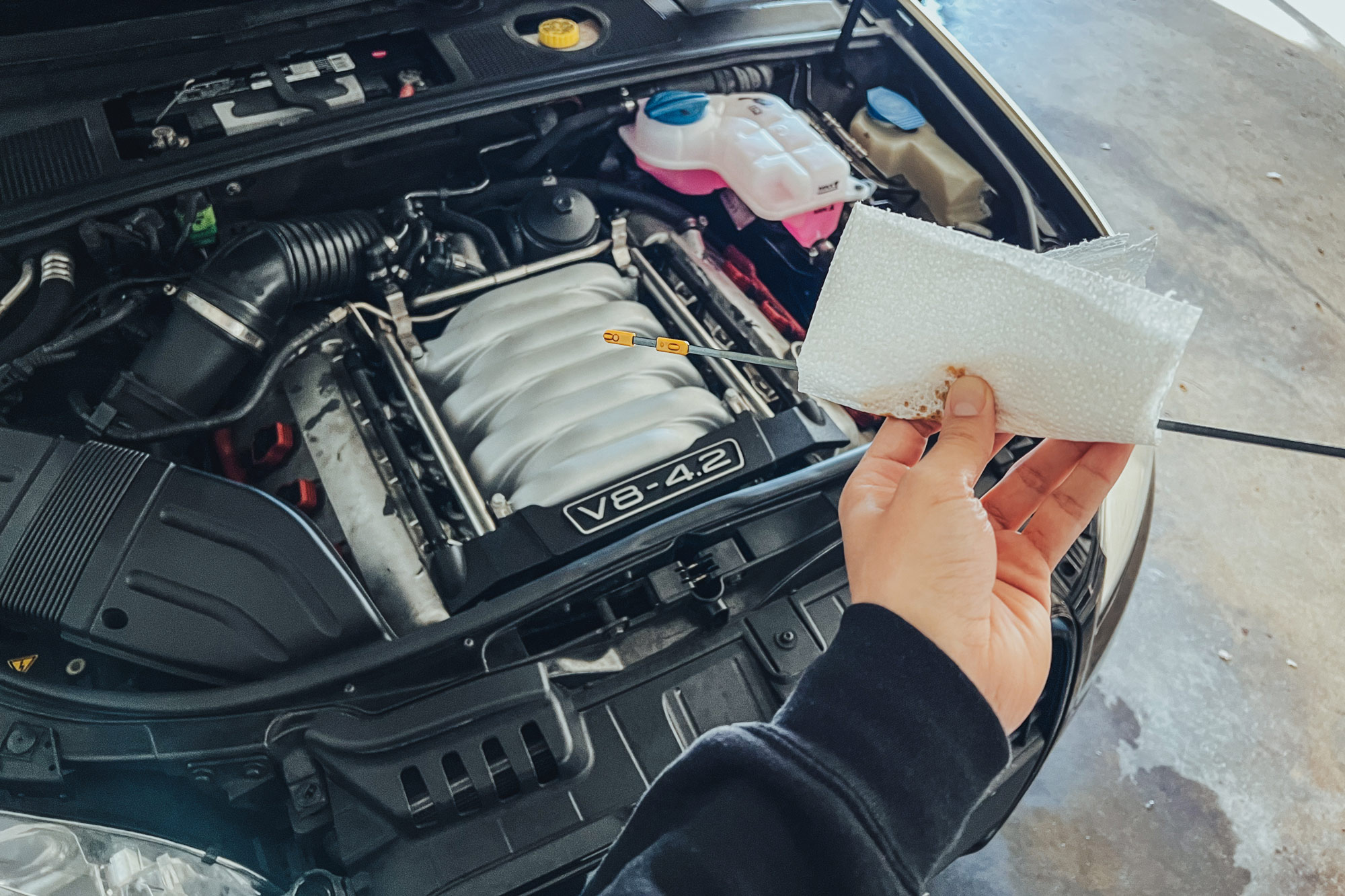Blackstone Oil Analysis: What to Know
A deeper look at your vehicle's lubrication can help you catch engine problems early.
 Manuel Carrillo III | Capital One
Manuel Carrillo III | Capital One
Unless you're an automotive enthusiast or a professional mechanic, you might be unfamiliar with a Blackstone oil analysis. This service can offer insight into your vehicle's condition and maintenance habits, regardless of whether you drive a high-performance car or own a shop.
Blackstone Analyzes the Condition of Your Oil
Blackstone Laboratories is a private company that processes automotive engine oil samples from car owners, shops, garages, and engine builders. Since 1985, Blackstone has been performing inductively coupled plasma-mass spectrometry analysis on internal-combustion engine oils.
Blackstone's process injects oil into a very hot (10,000 degrees Celsius) plasma flame, allowing the oil to be analyzed according to different light frequencies of the burning elements. Like viewing light through a prism, the spectrometer analyzes the combination of parts within the oil sample. This enables Blackstone to detect trace elements embedded in the sample, including contaminants or metals, and determine the engine oil's overall health.
All You Have to Do Is Mail in Your Oil
For customers, the process couldn't be simpler. Blackstone offers a sampling kit mailed to the customer for free. After collecting a sample of engine oil from your vehicle — typically during an oil change or sucked up through the dipstick using a pump — you put it in an envelope that comes with the kit and send it back to Blackstone for analysis. The company typically asks for details about your vehicle, such as its mileage and the brand and viscosity of the oil. It usually takes about two weeks to complete the process.
An Oil Analysis Can Give Clues as to Your Engine's Condition
The basic oil analysis provided by Blackstone offers several data points that can help evaluate the condition of an engine, the protection level provided by the oil, and the stress that certain driving conditions have put it under. Blackstone's report describes any contamination in the oil, such as moisture, metals, solids, or coolant; its additive and silicon content, which means dirt; as well as the actual viscosity of the oil and its flashpoint.
Armed with this information, you can make informed decisions about how often you need to change your oil and the engine's internal condition, compare the performance of one type of oil versus another, and determine how well your car's air and oil filters perform.
It's $35 for Blackstone's standard oil analysis. The company also provides other oil analysis options to assess specific concerns. These additional analyses can add between $10 and $200 and take longer to fulfill.
When Should You Get an Oil Analysis?
For most car owners, an engine oil analysis is ordered for peace of mind. Whether you are concerned about a problem with your vehicle's motor or whether the oil you are using is offering enough protection, a Blackstone analysis can be used as a diagnostic tool.
Some drivers want to more accurately calculate when they need to change their oil based on their driving habits. Examples include exposure to high revs and heat conditions, such as at a racetrack, while towing, or operating in dusty environments.
Written by humans.
Edited by humans.
 Benjamin Hunting
Benjamin HuntingBenjamin Hunting is a writer and podcast host who contributes to a number of newspapers, automotive magazines, and online publications. More than a decade into his career, he enjoys keeping the shiny side up during track days and always has one too many classic vehicle projects partially disassembled in his garage at any given time. Remember, if it's not leaking, it's probably empty.
Related articles
View more related articles